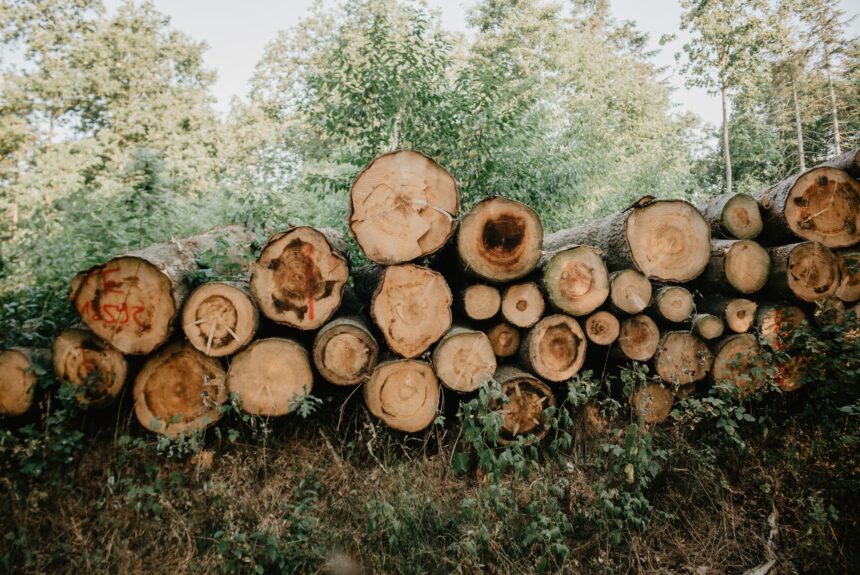Bill Gates-backed startup Graphyte has ambitious plans to permanently lock away carbon. In an announcement on Nov. 13, the company said that it has the technology to permanently remove billions of tons of carbon dioxide (CO2) for less than $100 a ton, an unheard-of figure in the costly world of carbon removal. Graphyte claims it can do so by utilizing a self-made process it dubs “carbon casting.”
>>>READ: 2023 Has Been the Year of Carbon Removal
According to CEO and founder of Graphyte, Barclay Rogers, carbon casting is a nature-based solution that leverages engineering techniques to store CO2 safely and affordably. The relatively nascent clean energy technology harnesses the natural, carbon-capturing properties of plants and trees and reverse engineers the process of photosynthesis to stop decomposition in its tracks. Graphyte uses low-value biomass like wood byproducts from the timber industry or crop residue from farming and agriculture operations to kickstart the technique.
First, the unwanted biomass is dried and compressed to remove the microbes and the water that would trigger decomposition. The inert material is then condensed into compact, impermeable polymer-sealed carbon blocks to ensure no water or gas seeps through (this would restart decomposition and hence release CO2 back into the atmosphere). Once the carbon-trapping ‘bricks’ are secure, they are moved underground and stored in state-of-the-art sites with remote sensing technology to ensure comprehensive, long-term monitoring. Graphyte says many storage sites can double as solar farms or as working agricultural land.
The Breakthrough Energy Ventures-incubated company claims that carbon casting preserves nearly all of the carbon sequestered in the biomass and does so in a minimally energy-intensive way. Importantly, this process does not take away much-needed resources from other critical projects; Graphyte utilizes idle plant inputs that would otherwise go to waste. “These materials are inexpensive, readily available around the world, and would typically be left to decompose, releasing carbon into the atmosphere,” Graphyte says. As such, carbon casting empowers farmers and foresters to be part of the climate solution as opposed to just sitting on the sidelines.
Not only does Graphyte offer low-cost Biomass with Carbon Removal and Storage, but its technology is scalable. Unlike other carbon removal methods available in the market today, such as energy-intensive DAC (which is certainly an important piece of the climate solution puzzle), Graphyte’s technology offers an immediate, easily scalable pathway to large-scale carbon removal. Carbon casting does not require significant capital costs or depend on major technological breakthroughs to achieve scale since it makes use of widely available biomass and a natural process. More importantly, Graphyte claims its levelized production costs are below the $100 a ton range, an anomaly in the industry that experts believe to be the magic number for carbon removal to be cost-competitive on the market.
>>>READ: Battelle, Climeworks, Heirloom Carbon Team Up to Advance Direct Air Capture
According to the Intergovernmental Panel on Climate Change, 5 to 10 billion tons of carbon dioxide must be removed annually by 2050 to limit global warming to 1.5 Celsius. Reducing our energy sector emissions will require an “all of the above” approach which leverages solutions that combine the best of the natural world and human engineering. Graphyte not only supports carbon removal efforts but also provides a pathway for other industries to contribute to the cause.
By combining the strength of nature-based approaches with the lasting impact of engineered removal, Graphyte has created a unique solution that accelerates progress toward the billions of tons of carbon removal needed to protect our planet,” Carmichael Roberts of Breakthrough Energy Ventures says. “As we work to accelerate the clean energy transition, Carbon Casting provides an opportunity to deliver higher volumes of permanent removals at an affordable price today.”
Nathalie Voit is a freelance content creator and a graduate of the University of Florida. She is an alumni of The Heritage Foundation’s Young Leaders Program.
The views and opinions expressed are those of the author’s and do not necessarily reflect the official policy or position of C3.
